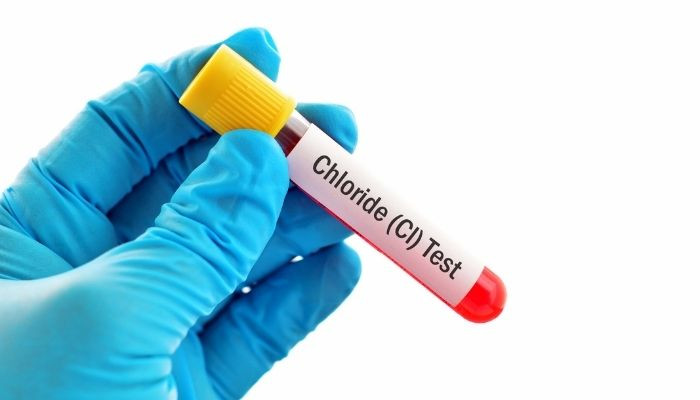Definition
A serum potassium test is a diagnostic test used to measure the amount of potassium in the blood. Potassium is an essential electrolyte, a mineral with an electrical charge, that plays a crucial role in maintaining fluid balance and the acid-base equilibrium in the body. In addition, potassium is vital for the optimal function of the heart, nerve cells, and muscle cells.
Serum potassium tests are typically ordered by doctors when patients exhibit symptoms that may indicate abnormal potassium levels. These conditions can be categorized as follows:
-
Hyperkalemia (high potassium levels in the blood), which may present with symptoms such as:
-
Irregular heartbeat
-
Fatigue
-
General weakness
-
Nausea
-
Paralysis of the hands and feet
-
-
Hypokalemia (low potassium levels in the blood), which may cause symptoms including:
-
Irregular heartbeat
-
Muscle cramps or stiffness
-
Sudden muscle twitching
-
Weakness and fatigue
-
Nausea
-
Difficulty in bowel movements
-
Additionally, serum potassium tests are frequently used to monitor or diagnose conditions related to abnormal potassium levels, including kidney disease, hypertension (high blood pressure), and heart disease. These tests are often performed alongside other tests, such as serum sodium, serum chloride, and serum bicarbonate, as part of a comprehensive serum electrolyte panel.
Indication
This test is typically performed in several conditions, including:
-
To help diagnose potassium imbalances if there are suspected symptoms or clinical signs.
-
To monitor serum potassium levels in patients undergoing treatment for certain conditions.
-
For screening purposes during medical check-ups.
-
To assess the balance of acid and base chemicals in the body.
Contraindication
There are no known contraindications or conditions that prevent someone from undergoing this test.
Preparation Before the Test
No special preparation is required before undergoing a serum potassium test. The test can be performed without the need for fasting. However, it is recommended to consult with a doctor beforehand, as certain conditions or medications could interfere with the results, making them not accurately reflect your actual health status. Some medications that may lower serum potassium levels include:
-
Corticosteroid drugs
-
Clonidine (used for high blood pressure, ADHD, and menopausal flushing)
-
Gentamicin (an antibiotic)
-
Amphotericin B (an antifungal drug)
Test Procedure
The serum potassium test typically uses a serum sample of 0.25 - 0.5 ml, which is drawn from a vein and collected into a special tube. Laboratory personnel will wear protective gloves and personal protective equipment (PPE) during the blood collection.
Before taking the sample, a tourniquet will be applied to the upper arm, and the needle puncture site will be cleaned with antiseptic gauze. The blood is usually drawn from the crease of the elbow. Once the blood is collected into the tube, the tourniquet is removed, and the puncture site is cleaned and pressed with antiseptic gauze. The entire procedure takes only a few minutes. The blood sample is then analyzed using specialized laboratory equipment, and the results are typically available within a few hours.
Normal and Abnormal Values
The normal range for serum potassium levels is generally not differentiated by age or gender. Below are the typical ranges for normal and abnormal serum potassium levels:
|
Value (mmol/L) |
Interpretation |
|
<2.5 |
Critical Value |
|
<3.6 |
Low |
|
3.6-5.2 |
Normal |
|
>5,2 |
High |
|
>8 |
Critical Value for Newborns |
|
>10 |
Critical Value for Adults |
It’s important to note that different laboratories may have slightly varying reference ranges, depending on the equipment or methods used.
Results and Recommendations (Follow-up Tests)
Low Potassium Levels
If your serum potassium test results show low values, you should consult with a doctor. The doctor will likely recommend adjustments to your diet and lifestyle to improve your health, or may begin specific treatments, such as medications or intravenous fluids, to help restore your serum potassium levels to normal.
Potassium is found in foods such as bananas, milk, fish, beef, chicken, and bread. Incorporating these into your diet can help maintain normal potassium levels.
Serum potassium levels lower than 3 mmol/L can lead to symptoms such as weakness and fatigue. Potassium levels below 2.5 mmol/L are considered critical and can be life-threatening if not treated promptly.
Medical conditions that can lead to low serum potassium levels (hypokalemia) include:
-
Gastrointestinal disorders that cause nausea and vomiting
-
Diarrhea
-
Excessive alcohol consumption
-
Folic acid deficiency
Even if your potassium levels appear low, it is crucial not to make a self-diagnosis. You should consult a doctor for proper evaluation and physical examination if you experience any related symptoms or concerns.
Normal Potassium Levels
If your serum potassium test results are within the normal range, it indicates that you are most likely maintaining a healthy lifestyle. To ensure that you continue to stay healthy, it is recommended that you sustain your current habits. By doing so, you can prevent potential health issues related to abnormal potassium levels, whether high or low, in your blood.
High Potassium Levels
If your serum potassium test results show elevated levels, it is essential to consult with a doctor. The doctor will likely suggest adjustments to your diet and lifestyle to improve your health, and in some cases, may begin a treatment plan involving medication to lower your serum potassium levels.
To achieve healthier potassium levels, consider making dietary and lifestyle changes. This may include eating a balanced diet, ensuring you get sufficient rest, engaging in regular physical activity for at least 15-30 minutes a day, 3-5 times per week, avoiding excessive alcohol consumption, and refraining from using over-the-counter medications without consulting a healthcare professional.
Generally, serum potassium levels higher than 6 mmol/L can lead to noticeable symptoms or clinical signs, and if untreated, they can be potentially life-threatening. Potassium levels exceeding 10 mmol/L are considered critical and can result in death in many cases.
Conditions that can cause elevated serum potassium levels (hyperkalemia) include:
-
End-stage renal failure
-
Hemolysis (a condition where blood cells break apart)
-
Trauma
-
Addison's disease
-
Electrolyte imbalance due to metabolic acidosis
-
Dehydration
Even if your potassium levels are elevated, it is important not to self-diagnose. You should seek medical advice for a comprehensive evaluation and physical examination if you experience any related symptoms or concerns.
Consult the Right Doctor
For adults, serum potassium test results can be discussed with a general practitioner, who may suggest further tests or begin therapy based on the diagnosis. You may also be referred to an internist or a nephrologist to address potassium-related concerns. In pediatric patients, any abnormal test results must be reviewed by a pediatrician for proper diagnosis and treatment.
Looking for more information about laboratory, radiology, and other examination results? Click here!
- dr Hanifa Rahma
Medscape. Potassium. 2019 November. Available from: https://emedicine.medscape.com/article/2054364-overview#a1
Medline Plus. Potassium blood test. 2020 July. Available from: https://medlineplus.gov/lab-tests/potassium-blood-test/
Mayo Clinic Lab. Potassium serum. 2022 April. Available from: https://www.mayocliniclabs.com/test-catalog/overview/602352#Clinical-and-Interpretive
NHS. Potassium test. 2021 November. Available from: https://www.nhs.uk/conditions/potassium-test/












